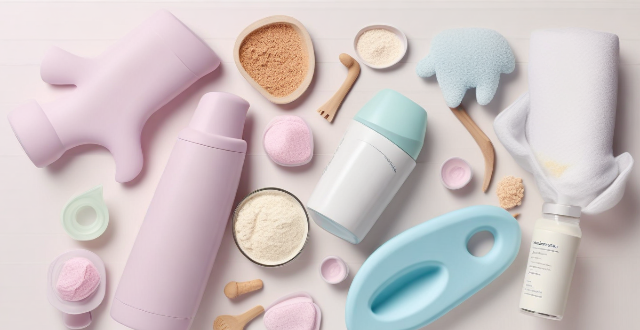The text provides a comprehensive list of items that should be included in a baby's first aid kit, organized into several categories: Basic Supplies (bandages, gauze pads, adhesive tape, antibiotic ointment, scissors, tweezers, disposable gloves, cotton swabs, thermometer); Pain Relief and Fever Reducers (Infant Tylenol or Motrin, teething tablets or gels); Digestive Issues (infant gas drops, oral rehydration solution); Skin Care (diaper rash cream, calamine lotion, hydrocortisone cream); Allergies and Cold Symptoms (saline nasal drops or spray, children's allergy medication, children's cough syrup); Miscellaneous Items (bulb syringe, instant cold pack, small flashlight with extra batteries, emergency contact information). The purpose of the text is to help parents be prepared for minor emergencies that may arise while caring for their baby by having these essential items readily available.

What Should Be Included in a Baby's First Aid Kit
A baby's first aid kit is an essential item for parents to have on hand. It should contain items that can help you care for your child in case of minor injuries or illnesses. Here are some key items that should be included in a baby's first aid kit:
1. Basic Supplies
- Bandages: Various sizes and shapes of bandages to cover cuts, scrapes, and burns.
- Gauze pads: For cleaning wounds and absorbing blood.
- Adhesive tape: To secure bandages and gauze pads in place.
- Antibiotic ointment: To prevent infection in minor cuts and scrapes.
- Scissors: Sterile scissors for cutting bandages and gauze pads.
- Tweezers: For removing splinters or other small objects from the skin.
- Disposable gloves: To protect both you and your child from germs.
- Cotton swabs: For cleaning wounds and applying ointments.
- Thermometer: To check your baby's temperature.
2. Pain Relief and Fever Reducers
- Infant Tylenol or Motrin: Appropriate dosages based on your child's age and weight.
- Teething tablets or gels: To relieve teething pain.
3. Digestive Issues
- Infant gas drops: To relieve gas and discomfort.
- Oral rehydration solution: To prevent dehydration due to diarrhea or vomiting.
4. Skin Care
- Diaper rash cream: To prevent and treat diaper rash.
- Calamine lotion: To soothe itchy bug bites and rashes.
- Hydrocortisone cream: For more severe rashes or eczema (consult with a doctor before use).
5. Allergies and Cold Symptoms
- Saline nasal drops or spray: To help clear stuffy noses.
- Children's allergy medication: Such as children's Claritin or Zyrtec (consult with a doctor before use).
- Children's cough syrup: Appropriate for your child's age and symptoms.
6. Miscellaneous Items
- Bulb syringe: For clearing mucus from infants' noses.
- Instant cold pack: For reducing swelling from bumps and bruises.
- Small flashlight: With extra batteries, useful during power outages or nighttime emergencies.
- Emergency contact information: Including your pediatrician's phone number and any relevant medical information about your child.
By having these items readily available in your baby's first aid kit, you can be prepared for most minor emergencies that may arise while caring for your little one. Remember to regularly check expiration dates and replace items as needed.